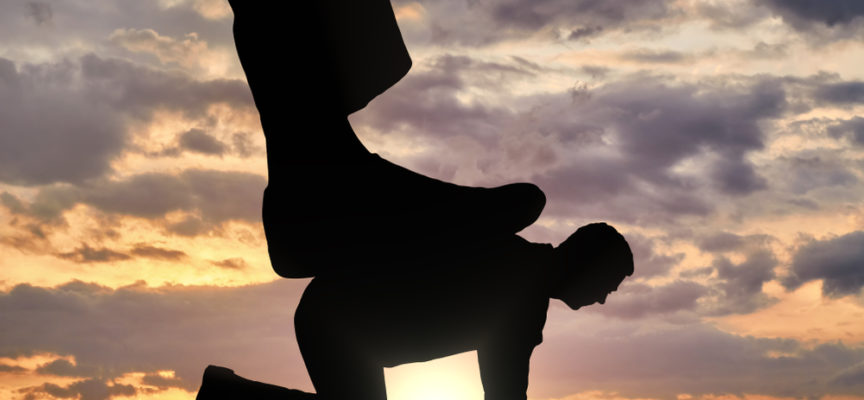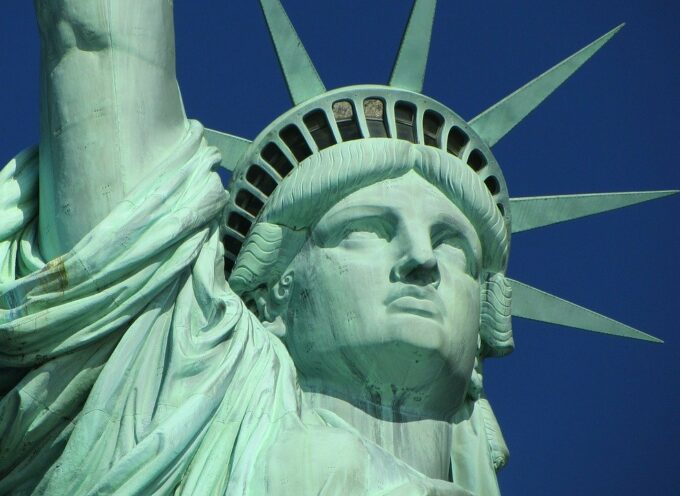The Christian life should be in every way a precursor to, and an anticipation of, Christ’s promise that he will return one day to set the world to rights. On that day, everything that darkens the world and degrades our lives will pass away. Christ will renew all things. This is the Christian hope.
And this hope sustains the greatest cause of our time—human dignity. Confessing that God created humanity in his image and redeemed us by the blood of his Son, any Christian ethic worthy of the name must contend for the dignity of each person created in God’s image—man or woman, born or unborn, black or white, rich or poor, useful or inconvenient. We must fight the good fight, opposing relentlessly the perverse tendency of our age to deny, minimize, or otherwise undermine the dignity bestowed upon all humanity by none other than God himself.
The West has cultivated a culture of death and human degradation in which the shedding of innocent blood is viewed as an individual right, and in which entire classes of humanity are degraded or devalued based upon their birth status, usefulness, nationality, race, class, religion, ideology, or political affiliation.
From where did this culture of death and degradation come?
The Rise of Globalization and Secularization
We might start by pointing out the negative effects of globalization and secularization. With the onset of globalization, we’ve experienced the rise of immoral market agents acting with impunity, as seen by the rise of global sex-trafficking networks who prey especially on young women and children to meet the demand of sex consumers internationally. We’ve also experienced the unjust scapegoating of refugees and immigrants of color for the problems experienced by the West’s working-class citizens.
Similarly, with the onset of secularization, we’ve seen a de-Christianization process in which elite cultural power-brokers have worked to sever the tie between Christianity and the West’s cultural order. Christianity has been displaced from the default position, as has its teaching about human dignity. As Polish philosopher and EU parliament member Ryszard Legutko recently argued, the Eastern European Communists of old would be envious to witness such a widespread embrace of anti-Christian dogma in today’s Western liberal democracies.
The Legalization of Lethal Violence
But to trace the emergence of the West’s culture of death, we must go further back to a U.S. Supreme Court ruling, Roe v. Wade. In the most perverse ruling in the Supreme Court’s history, the majority implicitly categorized the unborn being in a mother’s womb as her “personalty” (a legal term referring to one’s private property) and legalized abortion on the basis of a woman’s “right to privacy” in relation to the property in her womb. Thus, only a few years after the Civil Rights Movement, five privileged Ivy League lawyers bypassed the legislature to rule that an entire class of human beings—unborn human beings—will not be guaranteed justice and equality.
Roe v. Wade was like an environmental disaster on the moral ecology of our nation. This and other pro-abortion rulings harmed women by encouraging male irresponsibility and sexually-predatory behavior; men by giving them no legal say in the pending destruction of the baby they helped create; families and communities by teaching them that they can employ lethal violence in order to solve their problems; and law-governed democracy by denying justice and equality to an entire class of human beings—unborn babies. Roe v. Wade eroded the moral foundations of our nation, numbed our collected consciences, and set the stage for lethal violence to also be used against infants, the elderly, and the mentally or physically handicapped.
The Twentieth Century’s Ideological and Racial Cleansings
But the West’s culture of death and degradation must be traced even further back to the ideological and racial cleansings of the twentieth century. One thinks of the countless of millions of innocent citizens degraded and killed in Soviet concentration camps. Nobody who has read “The Ascent” in Alexandr Solzhenitsyn’s The Gulag Archipelago can forget his description of how the Communist Party viewed human beings as “swarming lice” rather than the “crown of creation,” as animals who served the state rather than as dignified beings in whom there exists “a little spark of God.”
Similar to Marxism, Nazi National Socialism rejected the biblical teaching about universal dignity, denying to Jews basic dignity, justice, and equality. Reflecting on the Nazis’ degradation of the Jews, dissident Hannah Arendt argued that Germany in particular, but also the West as a whole, would need to find a “new guarantee [of human dignity] whose validity this time must comprehend the whole of humanity.”
The Institution of Slavery
And yet, the culture of death goes much further back than Communism and Nazism. The founding of the United States was marred irreparably by the institution of slavery in which black human beings were declared chattel property. They were sold, bought punished, sexually abused, and lynched at the whim of their masters. Slavery is the original environmental disaster on the moral ecology of our nation, a disaster from which we have not yet recovered.
The institution of slavery harmed black children marring their earliest years with the message that they were inferior to their white counterparts; black women, who were valued not as human beings in God’s image but as wombs, workers, and sex toys; black men by valuing them primarily as machines who worked or animals who reproduced; black families, many of whom were ripped apart as mothers or fathers or children were sold down the river; and law-governed democracy by making a mockery of America’s claim to guarantee justice and equality for “all.”
The Origins of Death and Degradation
Countless other historical moments could be listed, but for now we will trace the culture of death all the way back to its origin in Adam and Eve’s sin which introduced evil to God’s good world, corrupting God’s world progressively. Like a cancer, it reproduced dynamically and relentlessly, always and everywhere leaving the aroma of death in its wake. Their son Cain, infected by evil, laid violent hands on his brother, spilling his blood and betokening the not only his fate but humanity’s as a whole.
The Greatest Indignity and the Gate of Hope
Cain’s hatred was great, but the consequences of it even greater. Yet, at the end of Cain’s history, and with it all of history, is Christ crucified, the Son of God slaughtered not only by us but also for us. And with the resurrection, Christ lives. In the midst of a culture of death and degradation, Christ lives and beckons, inviting us to experience true life and authentic dignity under his loving reign. With the gate of hope now thrown wide open, and with the world invited to experience true life and dignity, the Lord Christ all the more calls his people to represent him to the world, to cultivate a community of life and dignity amidst a culture of death and indignity.
The Path Paved by Ideas and Littered by Deeds
Long is the path that leads from Abel’s murder to Christ’s return. On that dark day millennia ago, the voice of Abel’s blood cried out from the ground. So it is that millennia later the voices of innumerable brothers and sisters join Abel in crying out from the lynching ropes and battle grounds and concentration camps and abortion mills of past and present. And if the Lord tarries, the road ahead will be to reveal yet-to-be-seen atrocities.
In our fight against the culture of death, we must remember that the path of death may be littered with deeds but is paved by ideas—specifically the idea that one human being, or one class of human beings, may usurp God’s kingship by giving self-permission to shed innocent blood or otherwise degrade other persons or even entire classes of humanity. In response, we must fight idea with idea, proclaiming the biblical teaching of the image of God.
Perhaps many of us can remember the first time we came to grips with the culture of death. For me it was nearly twenty years ago, when I encountered a debate about human dignity between Richard John Neuhaus and Peter Singer, in which Neuhaus defended the view that it is always and everywhere wrong to kill an innocent human being while Singer argued that it is permissible and sometimes even necessary to kill the innocent. He based his argument on a dismissal of the imago Dei, arguing not only in favor of abortion-on-demand, but also in favor of the legalization of infanticide, euthanasia, bestiality, and necrophilia.
In Singer’s argument, I recognized a great evil at work, an evil similar to the racial and ideological cleansings of the twentieth century and yet somehow palatable to the privileged and enlightened thought leaders who hired him and who applaud his work. Reading Singer was the existential “ground zero” from which I became a lifetime recruit for the pro-life cause. And since then, I have been determined to resist the culture of death.
We Shall Not Weary, We Shall Not Rest
Indeed, we must fight the culture of death tooth and nail, not only from the pulpit but also from the boardroom, the town hall, and the university quad. We must resist it wherever it is found. We have no guarantee of success. Our devotion to the cause of human dignity is not contingent upon its probability of success but upon the Lord’s invitation for us to be defenders of the weakest and most vulnerable among us. Addressing the National Right to Life Convention in 2008, Richard John Neuhaus declared:
The journey has been long, and there are miles and miles to go. But from this convention the word is carried to every neighborhood, every house of worship, every congressional office, every state house, every precinct of this our beloved country [so that] the word is carried that, until every human being created in the image and likeness of God—no matter how small or how weak, no matter how old or how burdensome—until every human being created in the image and likeness of God is protected in law and cared for in life, we shall not weary, we shall not rest. And, in this the great human rights struggle of our time and all times, we shall overcome.
Accordingly, we remain committed to the cause of human dignity as a matter of Christian witness and obedience, through thick and through thin, in victory and in defeat.
Some of our neighbors will deride us for declaring that a baby’s right to live trumps a woman’s right to choose. Others will mock our concern that the institution of slavery still finds its counterpart in a resurgence of ethno-nationalism and a demeaning of black and brown people. Yet others will trivialize our opposition to the creeping call for legalized euthanasia and infanticide. Indeed, some of our neighbors will even indict Christianity as the scourge of American society. They will wonder aloud if Christians should not in fact be silenced. Yet, while “Cain’s” hatred might be great, Christ’s love is even greater. In his love, and through his power, we shall not weary, we shall not rest.
[Note: This essay is patterned after Richard John Neuhaus’ “We Shall Not Weary, We Shall Not Rest” (an address originally delivered as the closing remarks for the 2008 convention of the National Right to Life Committee) in honor of Neuhaus’ memory and in solidarity with his vision for human dignity.]
Subscribe
Never miss a post! Have all new posts delivered straight to your inbox.








Thanks for your insightful article
Cheers Jeff, I agree with you